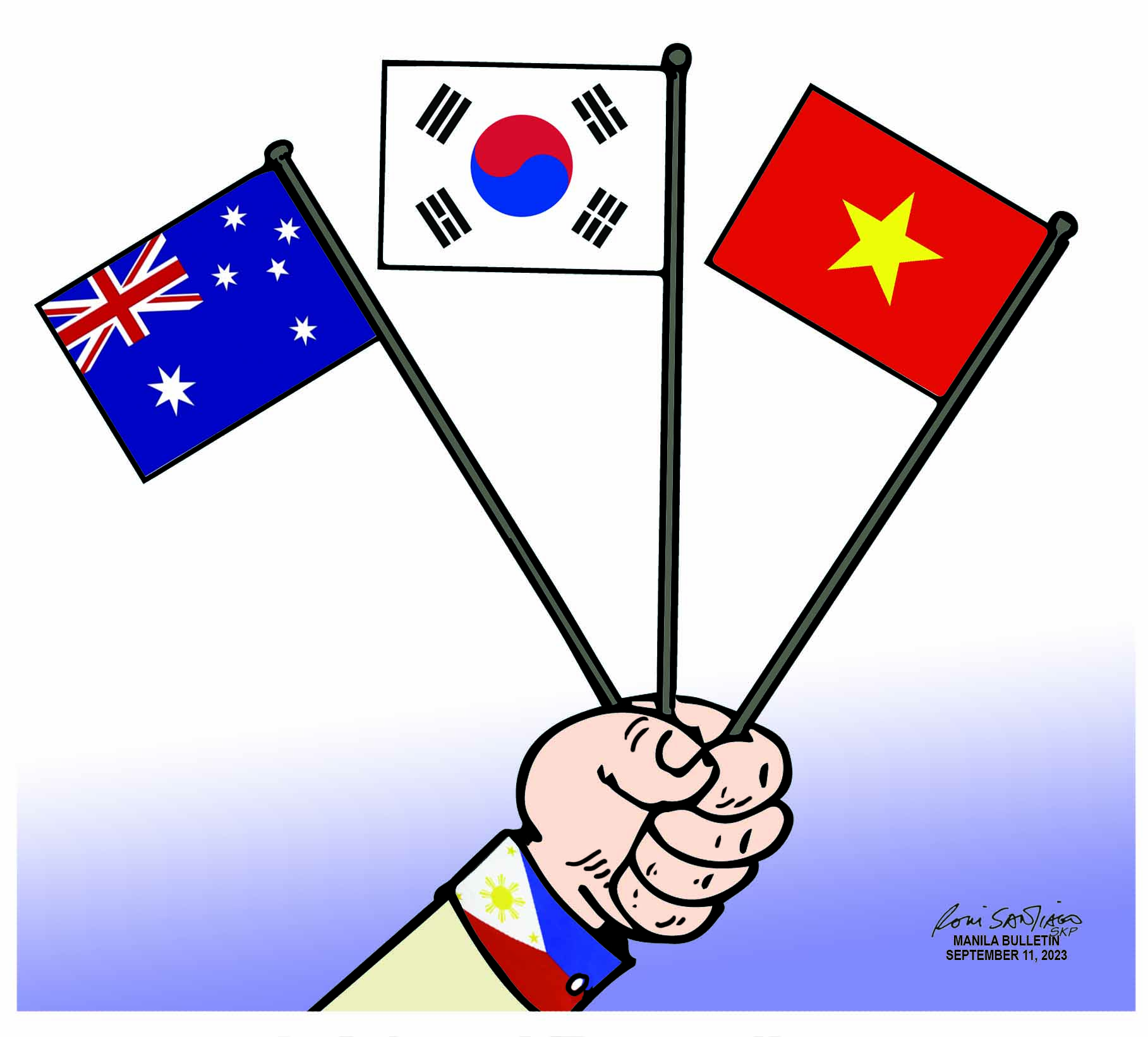PH strengthens links with Australia, South Korea, Vietnam; closer people-to-people ties is main driver
 President Ferdinand R. Marcos, Jr. joined other regional leaders at the Association of Southeast Asian Nations (ASEAN) summit last week and presided over the forging of three key agreements: a five-year rice trading agreement with Vietnam; the establishment of a Free Trade Agreement with South Korea; and the declaration of a Strategic Partnership with Australia.
President Ferdinand R. Marcos, Jr. joined other regional leaders at the Association of Southeast Asian Nations (ASEAN) summit last week and presided over the forging of three key agreements: a five-year rice trading agreement with Vietnam; the establishment of a Free Trade Agreement with South Korea; and the declaration of a Strategic Partnership with Australia.
The Philippine-Australia Strategic Partnership covers cooperation in the following spheres: Politics and strategy, defense and security, economy, development, environment and climate change, and people-to-people links.
The breadth of the two countries’ political and strategic relationship includes “defense and security, maritime security cooperation, counter-terrorism and combating transnational and organized crime, critical infrastructure security, non-proliferation, arms and export controls, development cooperation, and consular and crisis management, including traditional and non-traditional crises.”
In the economic sphere, the elevated relationship focuses on the following: “developing resilient supply chains, supporting the climate and the clean energy transition, and in mining and minerals processing, education, food security, digital and creative economies, (and) the Blue Economy across various sectors such as fisheries, aquaculture and maritime transport, and high-quality infrastructure development.”
Prime Minister Anthony Albanese, the first Australian head of government to conduct bilateral talks with a Philippine President in the last 20 years, signed, too, with President Marcos an agreement on a Work and Holiday Visa Arrangement. This is a vital aspect of strengthening people-to-people relations. Lately, many medical doctors, nurses, healthcare and social assistance professionals; as well ss those in manufacturing; wholesale and retail trade; and accommodation and food services, have formed the larger segments of Filipinos migrating to Australia.
He also emphasized that a vital part of the new strategic partnership framework is a five-year program that will “help further reduce violent conflict, reintegrate former combatants, and improve community development livelihood, particularly for women and those in vulnerable situations,” as well as a memorandum of understanding on National Soil Health Strategy.
The new free trade agreement (FTA) with South Korea — the country’s seventh-largest export market — covers 11,164 agricultural and industrial products. If it is regarded as an executive agreement, it is expected to take effect in January 2024. If deemed a treaty, its effectivity shall be after ratification by the Philippine Senate.
The five-year rice supply deal was announced by Prime Minister Pham Minh Chin after his talks with President Marcos at last week’s ASEAN summit in Jakarta. Vietnam supplies up to 90 percent of the Philippines’ rice imports. Beyond assuring steady rice supply to the country amid supply chain challenges arising from the ongoing Russia-Ukraine conflict, the rice pact underlines the importance of strong bilateral ties between the Philippines and Vietnam. The two leaders also discussed broader cooperation in agriculture, aquaculture as well as in the digital and green economy.
Indeed, top-level diplomacy is crucial in crafting strategic bilateral agreements. While substantial credit goes to our senior diplomats and government technocrats, the main driver of all these initiatives is the friendship and goodwill that permeate and reinforce enduring people-to-people ties.